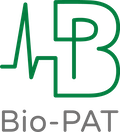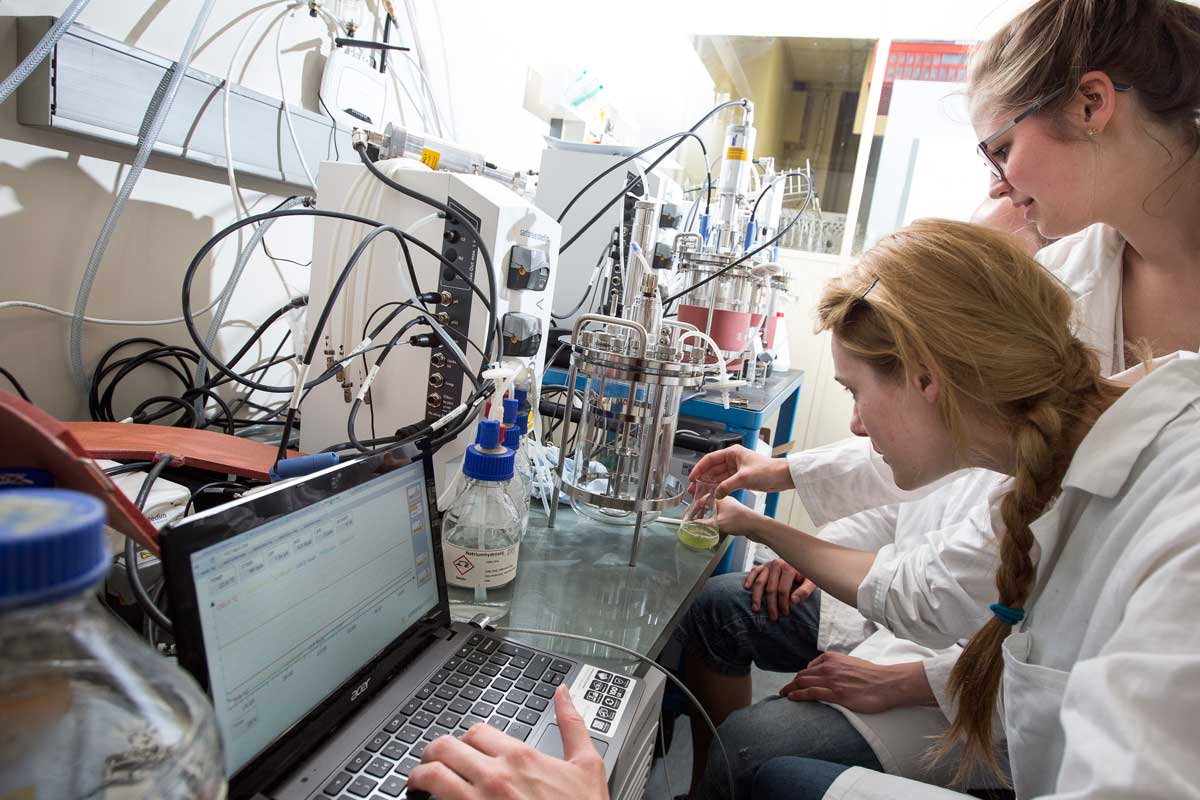BHT: Neuer Forschungsverbund IMPACT bietet Kooperationen an für Partner aus Industrie und Wissenschaft (English below)
An der Berliner Hochschule für Technik (BHT) wurde im Oktober der neue Forschungsverbund IMPACT (Interaction, Metabolism, Purification, Analytics, Co-Culture and Target-specific Drug-Design) aus der Taufe gehoben. Finanziert mit Mitteln der Hochschule soll für zunächst 3 Jahre im Bereich der Lebenswissenschaften in einer interdisziplinären Gemeinschaft ein Forschungsprogramm entwickelt und implementiert werden.
Gemeinsames Ziel der Arbeiten ist die Charakterisierung und Produktion bioaktiver Substanzen sowie die Analyse von Gemeinschaften lebender Zellen. Gemäß dem Leitbild der BHT „Stadt der Zukunft“ sollen die Ergebnisse dieser Forschungsaktivitäten im Bereich der Hygiene und der Bekämpfung von Krankheiten Anwendung finden.
Derzeit schon begonnene Projekte sind:
– Identifikation und Produktion eines Wirkstoffes gegen Malaria mittels Kultivierung rekombinanter Mikroorganismen (AG Reber, simone.reber@bht-berlin.de).
– Vermeidung von Kontaminationen durch mikrobielle Biofilme in Trinkwasserversorgung und Medizin (AG Grohmann, egrohmann@bht-berlin.de).
– Identifikation neuer Wirkstoffe und Produktionssysteme durch automatisiertes High-Throughput-Screening von definierten Cokulturen verschiedener Zellen (AG Götz, peter.goetz@bht-berlin.de). Die Gruppe Bioprozesstechnik, verbunden mit dem Biotechnikum der BHT ist Mitglied im Netzwerk Bio-PAT.
Für neue Kooperationsprojekte werden Partner aus Industrie und Wissenschaft gesucht. Schwerpunkte der an der BHT verfügbaren Expertise sind moderne Methoden der Stamm- und Proteincharakterisierung (MALDI-TOF), Kultivierung von Stämmen bis zur Risikogruppe 3**, automatisiertes liquid-handling mit Assays auf der Basis humaner Zelllinien, Entwicklung mikrofluidischer Systeme sowie mikrobielle Kultivierungen, Zellkulturen und downstream processing bis in den Pilotmaßstab.
Für Anfragen und Kooperationsangebote wenden Sie sich bitte an die Projektleiter oder an die wissenschaftliche Koordinatorin, Frau Dr. Rybakova (daria.rybakova@bht-berlin.de).
BHT: New Research Consortium IMPACT offers collaborations for partners from industry and science
In October, the Berliner Hochschule für Technik (BHT) launched the new research consortium IMPACT (Interaction, Metabolism, Purification, Analytics, Co-Culture and Target-specific Drug-Design). Financed with funds of the university, a research program will be developed and implemented in the field of life sciences within an interdisciplinary community for an initial period of three years.
The common goal of the work is the characterization and production of bioactive substances, as well as the analysis of communities of living cells. In line with the BHT’s vision of the „City of the Future,“ the results of these research activities are intended to be applied in the areas of hygiene and disease prevention.
Projects already started include:
– Identification and production of an agent against malaria through the cultivation of recombinant microorganisms (research group Reber, simone.reber@bht-berlin.de).
– Prevention of contaminations by microbial biofilms in drinking water supply and medicine (research group Grohmann, egrohmann@bht-berlin.de).
– Identification of new agents and production systems through automated high-throughput screening of defined co-cultures of various cells (research group Götz, peter.goetz@bht-berlin.de). The group of bioprocess engineering, connected to the „Biotechnikum“ at BHT is member in the network Bio-PAT.
For new cooperation projects, partners are searched from industry and science. The main focus areas of expertise available at BHT include modern methods of strain and protein characterization (MALDI-TOF), cultivation of strains up to risk group 3**, automated liquid-handling with assays based on human cell lines, development of microfluidic systems, as well as microbial cultivations, cell cultures, and downstream processing up to pilot scale.
For inquiries and collaboration offers, please contact the project leaders or the scientific coordinator, Dr. Rybakova (daria.rybakova@bht-berlin.de).


